Iran Spokesman Says No Preconditions For Returning To Talks
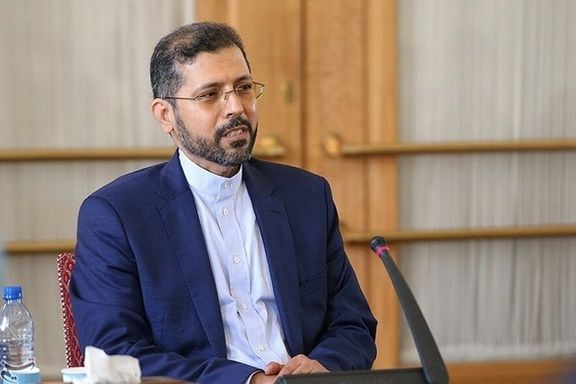
Spokesman of Iran’s foreign ministry has reiterated Tuesday that Iran has no preconditions for returning to nuclear talks and will do so when ready.

Spokesman of Iran’s foreign ministry has reiterated Tuesday that Iran has no preconditions for returning to nuclear talks and will do so when ready.
Saeed Khatibzadeh tweeted that “We will return to Vienna as soon as our internal review process is concluded. No preconditions.”
This has been Tehran’s position for the last few weeks as the United States and its European allies have been urging Iran to return to the talks aimed at restoring the 2015 nuclear agreement, JCPOA.
Khatibzadeh on Monday had told France24 channel in an interview that Iran was reviewing all issues related to six rounds of talks held from April to June in Vienna and would return to talks when it was ready.
On Saturday, Iran’s foreign minister Hossein Amir-Abdollahian had said that while in New York in September he refused to meet with US officials telling intermediaries that Washington should first unfreeze $10 billion of Iran’s funds.
However, Kharibzadeh said in his interview that "800 new unilateral and illegal" sanctions imposed on Iran after Donald Trump withdrew from the JCPOA should be removed.
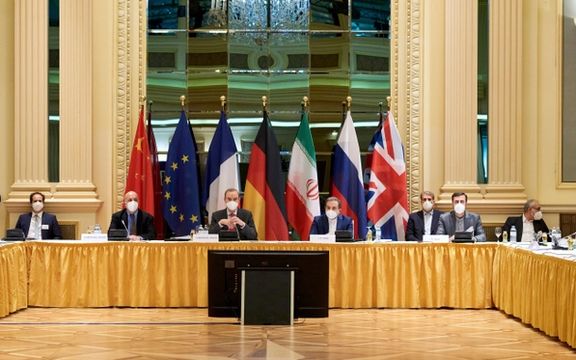
Western powers have been trying for weeks to get Tehran's answer to one question - when will it return to nuclear talks that have been on hold since June.
Iran's response has been a simple "soon", even at one point saying that 'soon' has a different connotation in Iran.
Behind Tehran's stalling is an attempt to gain leverage to extract more concessions when negotiations do eventually resume, officials and analysts said, including by advancing its uranium enrichment program, a possible pathway to a nuclear bomb.
Iran has long denied seeking to weaponize nuclear energy.
The talks, which aim to bring both Washington and Tehran back into compliance with a 2015 nuclear pact aimed at curbing the Iranian enrichment program, were adjourned in June after hardliner cleric Ebrahim Raisi was elected Iran's president.
"Iran will eventually return to the talks in Vienna. But we are in no rush to do so because time is on our side. Our nuclear advances further every day," a senior Iranian official said on condition of anonymity.
Ali Vaez, senior Iran analyst at the International Crisis Group, said "more time equals more leverage, given the exponential growth of Iran’s nuclear program".
While China and Russia, closer trading partners of Iran, are more restrained, Western parties to the pact can scarcely conceal their frustration. The United States and European powers have urged Iran to resume talks, saying the diplomatic window would not stay open forever as Tehran's nuclear program is advancing well beyond the limits set by the 2015 pact.
The nuclear agreement limited Iran’s uranium enrichment activity to make it harder for Tehran to develop nuclear arms, in return for lifting international sanctions.
But former U.S. President Donald Trump ditched the deal in 2018, saying it did not do enough to curb Iran’s nuclear activities, ballistic missile program and regional influence, and reimposed sanctions that have crippled Iran’s economy.
In response, Tehran breached the deal by rebuilding stockpiles of enriched uranium, refining it to higher fissile purity and installing advanced centrifuges to speed up output.
"They (Iran) keep saying they are going to come back to the table. But when they say soon ... it means absolutely nothing," said a senior European diplomat.
"That doesn't mean we think they don't want to come back, but we think they want their cake and to eat it. They want to create a fait accompli on the ground - technical and nuclear - and preserve the possibility of a negotiation."
MORE FOR LESS
Emboldened by the chaotic U.S. withdrawal from Afghanistan, Iran's rulers are confident their stalling strategy will not bring serious repercussions, analysts said, especially when U.S. President Joe Biden is embroiled in a growing rivalry with China and battling a COVID-19 crisis at home.
In contrast, the Biden administration is signaling that Iran should take nothing for granted.
Top US officials will tell visiting Israeli counterparts in Washington on Tuesday they are committed to diplomacy but would be prepared to pursue "other avenues" to ensure Tehran does not acquire a nuclear weapon, a senior U.S. official said.
Israel says it will not allow Tehran to get a nuclear bomb.
The man with ultimate authority in Iran, Supreme Leader Ayatollah Ali Khamenei, has blamed the United States for the pause in the talks.
"Ayatollah Khamenei seems to believe that by waiting, he can get a better deal from Washington. That time is on his side," said Meir Javedanfar, Iran lecturer at Israel's Reichman University.
Tehran and Washington still disagree on which steps need to be taken and when, with the key issues being what nuclear limits Tehran will accept and what sanctions Washington will remove.
The fact that indirect talks between Tehran and Washington paused after the election of Raisi was a sign of Tehran's plan "to press for major concessions" from the United States, said a former Iranian official.
"The establishment is also weighing different tactics to get more and give less in return. It takes time to determine their strategy," he said.
Naming Ali Bagheri Kani, an ardent critic of the 2015 pact, to replace former pragmatist chief nuclear negotiator Abbas Araghchi, signals Tehran will take an uncompromising approach when the talks resume, Eurasia Group analyst Henry Rome said.
ECONOMIC RISK
In addition to seeking the lifting of Trump-era sanctions in a verifiable process, Tehran also wants Washington to remove Iran's Revolutionary Guards from a terrorism blacklist. It also wants Europe to guarantee foreign investors will return, and assurances that Washington will not renege on the deal again.
For his part, Biden wants to restore the pact's nuclear limits and, if possible, extend them while pushing back against what he has called Iran's other destabilizing activities.
Sanam Vakil, deputy director of Chatham House’s Middle East and North Africa Program, said Iran would 'win' if it gained further concessions from Washington, but should the deal collapse Iran's rulers sense that they could survive through "maximum resistance", a reference to economic self-reliance.
However, Iran's foot-dragging strategy could weaken the country's clerical rulers by further hurting an economy already grappling with squeezed oil revenues.
The authorities fear a re-eruption of unrest among its core supporters lower-income Iranians - whose periodic bouts of protest in recent years reminded them how vulnerable they could be to popular anger over economic hardships.
"A failure to revive the nuclear deal entails real economic risk for Iran ... but politics trumps economics right now," Rome said.
Analysis by Parisa Hafezi and John Irish, Reuters
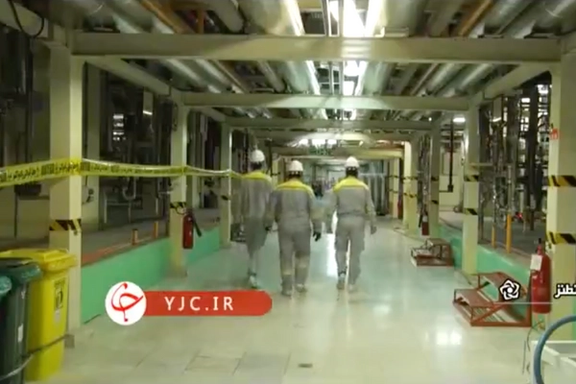
Top US officials will tell their Israeli counterparts on Tuesday that the Biden administration remains committed to diplomacy with Iran, but if necessary would be prepared to pursue "other avenues" to ensure Tehran does not acquire a nuclear weapon, a senior US official said.
A visit to Washington by Israel's national security adviser, Eyal Hulata, will allow the two allies to share intelligence and develop a "baseline assessment" of how far Tehran's nuclear program has advanced, the official said.
Under a 2015 deal, Iran curbed its uranium enrichment program, a possible pathway to nuclear arms, in return for the lifting of economic sanctions. Then-President Donald Trump quit the deal in 2018 and the Israeli government opposes US efforts to revive it.
In broad terms, US experts believe the time it would take Iran to achieve nuclear "breakout" – enough enriched uranium to build a nuclear bomb – has "gone from about 12 months down to a period of about a few months" since Trump pulled out of the pact, the official said, speaking on condition of anonymity.
"Obviously that is quite alarming," the official told reporters ahead of Hulata's talks with US national security adviser Jake Sullivan.
Iran has consistently denied it is developing nuclear weapons.
Echoing President Joe Biden's comments in a White House meeting with Israeli Prime Minister Naftali Bennett in August, the official said: "We of course remain committed to a diplomatic path."
"But obviously if that doesn't work there are other avenues to pursue, and we are fully committed to ensuring that Iran never develops a nuclear weapon."
Asked what actions were under consideration and whether that included military options, the official said "we'll be prepared to take measures that are necessary" but did not elaborate.
The official said that Iran was "sending indications to a number of parties that they are preparing to come back to Vienna," where the United States and Iran held indirect talks earlier this year that stalled.
But signaling that obstacles remain, Iran's foreign minister said on Saturday that the United States must first release $10 billion of Tehran's frozen funds as a sign of good will, something the Biden administration has shown no willingness to do.
Bennett, a far-right politician who ended Benjamin Netanyahu's 12-year run as prime minister in June, has made clear he wants Biden to harden his stance against Iran, Israel's regional arch-foe.
There is also disagreement over Biden's opposition to further expansion of Jewish settlements on occupied land that the Palestinians want for a future state.
Asked whether the issue would be part of Tuesday's talks, the U.S. official said Israel was well aware of the administration's view of the need to refrain from actions that could be seen as "provocative" and undermine efforts to achieve a two-state solution between Israel and the Palestinians.
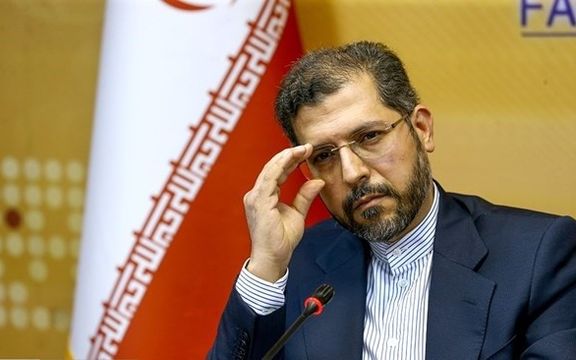
Insisting there was “no substitute” for Iran’s 2015 nuclear deal, the foreign ministry spokesman Monday dismissed any urgency in restarting talks to revive it.
Saeed Khatibzadeh pointed out that United States president Joe Biden had been in office for three months before talks began in Vienna on renewing the agreement, the JCPOA (Joint Comprehensive Plan of Action).
Some reporters read this as a signal that talks would resume in early November. But Khatibzadeh was far from specific.
With new Iranian president Ebrahim Raisi (Raeesi) in office “for less than 55 days,” said the spokesman, “a new negotiation team may have their own views” while other parties to the Vienna talks were realizing they needed to be more flexible.
Studying the issue
The new team, the spokesman said, were studying “all the issues” in the six past rounds of Vienna talks, which formally involve remaining JCPOA signatories − China, France, Germany, Iran, Russia and the United Kingdom − as well as indirectly the United States, which under former US president Donald Trump left the deal in 2018 and imposed stringent sanctions on Tehran that remain in place.
The European signatories, while calling on both the US and Iran to abide by the JCPOA, have become increasingly uneasy at the expertise Iran is gaining with steps taken since 2019 expanding the nuclear program beyond JCPOA limits. The Europeans also sense that the Raisi administration may believe it is in stronger position with some signs of recovery in the Iranian economy.
The German foreign ministry Monday issued a statement that Iran could not “set further conditions for resuming the talks,” which should “resume as soon a possible.” Berlin’s statement followed a suggestion from Iran’s foreign minister Hossein Amir-Abdollahian Saturday, that while in New York last month for the United Nations general assembly he told US officials through intermediaries that he would accept their request for a meeting if Washington as a good-will gesture released $10 billion of Iran’s assets frozen abroad.
Asked about this Monday, Khatibzadeh said the US should release funds “to show they mean what they say.” The spokesman referred to reports that the US wanted the Vienna talks to include Iran’s missile defence by stressing there was “no substitute for the JCPOA,” and that “if all sanctions in an effective way are removed, Iran will stop all [nuclear] actions in reducing its commitments.”
Plans B and C
Asked about a ‘plan B’ should the Vienna talks fail, Khatibzadeh said that while any government in the world would have a ‘plan B and C,’ all should focus on plan A.
The Vienna talks, which began in April and were suspended in June pending the Iranian presidential election and subsequent transition, struggled to agree which US sanctions were incompatible with the JCPOA and exactly how the Iranian nuclear program would be returned to JCPOA limits.
The Biden administration has said it is willing to lift all ‘non-nuclear’ sanctions, but the Trump administration made no secret that sanctions introduced ostensibly on other grounds were intended to stymie subsequent efforts at reviving the JCPOA. Tehran also highlights a general commitment in the deal to allow it access to world markets.
While some aspects of the JCPOA limits on Iran’s nuclear program are relatively clear-cut − for example enriching uranium to just 3.67 per cent rather than levels now reaching 60 percent − Tehran is constantly gaining experience and technical knowledge. It has also replaced older centrifuges, the devices used to enrichment, with more advanced ones barred by the JCPOA, in some cases because of attacks on nuclear sites widely attributed to Israel.
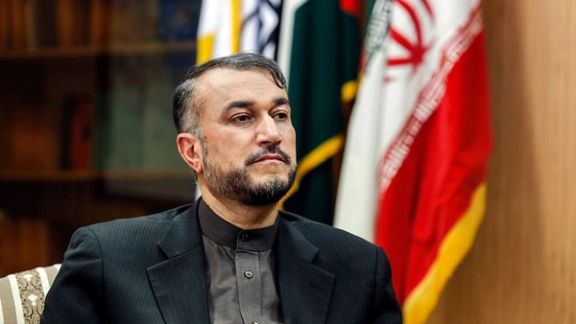
Germany rejects Iran's demands for the US to release frozen Iranian assets as a condition for nuclear talks to resume, German foreign ministry said on Monday.
"Iran cannot set any further conditions for resuming the talks," a German foreign ministry spokesman said after Iranian foreign minister Hossein Amir-Abdollahian's demand for assets worth 10 billion dollars to be released as a goodwill gesture.
Under President Donald Trump, the United States unilaterally withdrew from the 2015 agreement with Iran, Britain, France, China, Russia and Germany aimed at stopping Iran from developing a nuclear weapon.
President Joe Biden aims to restore the deal, but the sides disagree on which steps need to be taken and when, with the key issues being what constraints Tehran will accept and what sanctions Washington will remove.
"We call on Iran to resume talks as soon as possible," the German foreign ministry spokesman said, adding he expects an agreement on a specific date.
Report by Reuters
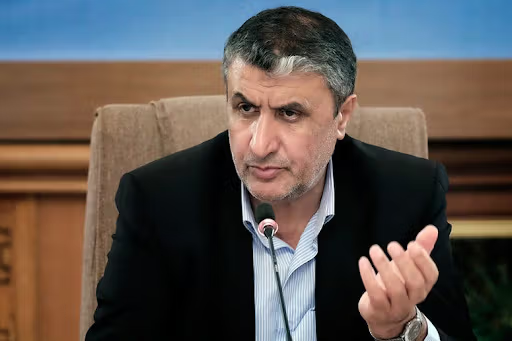
Mohammad Eslami, the head of Iran's nuclear organization has told reporters that Israel was responsible for an attack on one of its nuclear facilities in June.
Earlier on Sunday he told the Russian Sputnik news agency it was regrettable that neither the UN nuclear watchdog, IAEA nor "the countries that have made monitoring claims against" Iran have condemned the "terrorist act" that severely damaged a centrifuge component manufacturing workshop in Karaj, near Tehran, in June.
"Not condemning a terrorist act at an official site under IAEA supervision is tantamount to supporting terrorists," Eslami said in an exclusive interview with Russia's Sputnik news agency Sunday. Iran so far had not officially named Israel or any group as responsible for the attack on the Karaj facility but has accused Israel for the April attack on the Natanz enrichment facility.
Iran and the IAEA have been in a standoff in recent weeks over Tehran's denial of access to IAEA inspectors to service the equipment at the at the TESA Karaj Complex, in north-central Alborz province. Since February Tehran has limited IAEA inspections. The IAEA says the limitations have seriously affected its monitoring activities. The European Union-brokered nuclear talks aimed at restoring the JCPOA that began in Vienna in April were also suspended in June after six rounds of talks and Iran is not showing an active interest in resuming them.
Denial of access to IAEA inspectors can be interpreted as a toughening of Iran’s position in its dealings with the international community over its nuclear program.
Many believe that Tehran is stalling the resumption of talks over reviving the Joint Comprehensive Plan of Action (JCPOA), to add to its highly enriched uranium stockpile to strengthen its position in any future talks with more bargaining chips. Western powers are concerned that the delay in resumption of Vienna talks, and Iran's further violations of its commitments under the deal including higher enrichment levels and stockpiling of highly enriched uranium, may destroy any chances of restoring the deal.
Although the JCPOA only allows Iran to enrich uranium to the level of 3.67%, Tehran has continuously increased its enrichment level since the US withdrawal from the deal in 2018. Tehran has increased its stockpile of 60% enriched uranium from 2.4kg in May to 10kg in August according to IAEA estimates. The amount of 20% enriched uranium has also gone up from 62.8 to 84.3kg.
Meanwhile, it appears that Tehran is seeking concessions from the US to return to the talks. Foreign Minister Hossein Amir-Abdollahian in an interview with the state-run television (IRIB) said while in New York recently, he demanded the release of $10 billion of Iran's frozen funds by the US as a good will gesture to encourage Iran to resume the talks.
Eslami who had earlier on September 30, called the recent report of the International Atomic Energy Agency (IAEA) on access to monitoring cameras at the Karaj facility "unconstructive" and the IAEA director general's statements about man-made uranium particles at three Iranian sites "false", charged in the interview with Sputnik that the issue of man-made uranium particles was "false news" which a "terrorist group -- presumably the Mujahedin-e-Khalq organization – is actively promoting. "The IAEA, as an international body, should not fall for these tricks and become a puppet in the hands of this terrorist group," he declared.